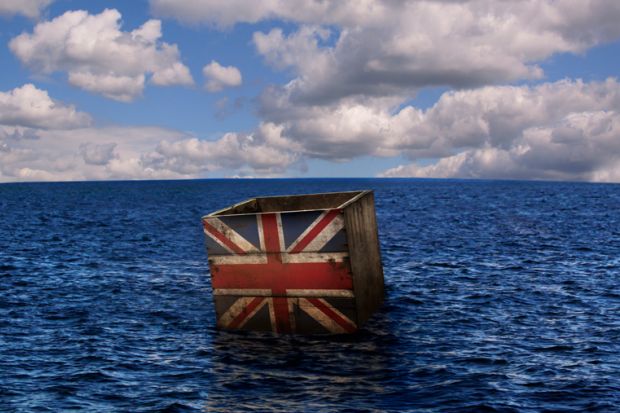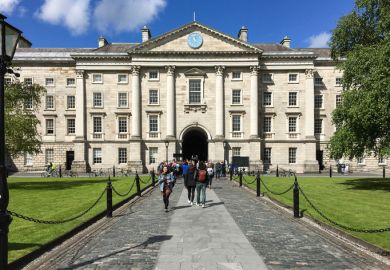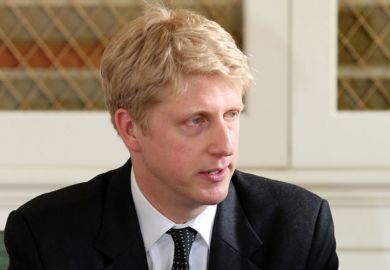“This is a shocking result for the nation and its universities and a dark day for UK science.”
That was the verdict of Paul Boyle, vice-chancellor of the University of Leicester, regarding the UK’s vote last week to leave the European Union. He may well be right.
Unsurprisingly, the status of their European staff and students was universities’ immediate concern in the shocked aftermath of the verdict. But this is probably the least of universities’ worries. Realistically, neither European academics nor students are going to be deported or denied future entry. EU students will only become more attractive to the Treasury if their entitlement to UK student loans is ended (and it is hard to believe that current EU students will have their access to loans cut off mid-course), while highly qualified academics are exactly the sorts of people that the Brexit camp’s favoured points-based immigration system would wave through. Whether either students or academics will want to come, though, given the anti-immigration mood music, is another question.
Moreover, any restriction on immigration, at any skills level, from the rest of EU is likely to make it difficult for UK universities to continue to participate fully in the Horizon 2020 and Erasmus+ programmes. When Swiss voters opted in a referendum in 2014 to restrict immigration, the EU reacted by denying it associate membership of both. Optimists will note that Switzerland subsequently negotiated access to certain parts of Horizon 2020, including the gold-standard European Research Council grants. They will also note that the ERC programme would lose some of its lustre if Europe’s strongest scientific nation did not participate. But the idea that the rest of the EU will tolerate the UK taking out vastly more from the programme than it puts in, as it currently does, is surely a fantasy – participation will undoubtedly cost more.
Either way, the UK’s role in defining the architecture of European research funding will be vastly diminished. Other EU nations that share the conviction that distribution must be based on excellence rather than geography or need will miss the UK’s clout at the negotiating table. The result may be a Framework Programme 9 that is not something the UK would care to join even if it were permitted to.
An alternative, of course, would be for the UK government to boost the domestic research budget in line with the amount currently won from the EU. But even if the economic shock of Brexit does not eliminate the Leave camp’s projected savings from leaving the EU, there is still a question about whether a populist post-Brexit government will choose to redirect any of those savings to universities (populated by those experts of whom the British public is supposedly sick).
Whatever happens, the next few years will be ones of uncertainty, and that will take its toll even if the worst-case scenarios do not ultimately come to pass. Top researchers, feeling unwelcome and unsure of their funding prospects, will leave. Others will not come. And what of the research-heavy industries that are such important employers of science graduates? How many will stay in the UK?
One thing is clear: Boris Johnson’s greatest political triumph has left a heck of a mess for his brother Jo, the universities and science minister, to clean up.



